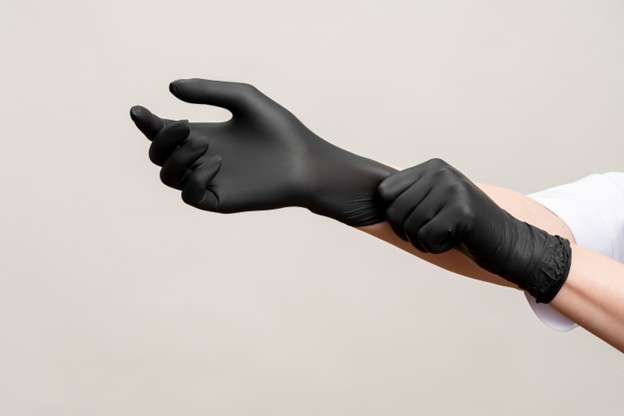
Choosing the right tattoo gloves is one of the most important decisions any tattoo artist can make. These gloves are more than a protective layer. They influence hygiene standards, control, grip, and endurance during long sessions, and ultimately the quality of every tattoo performed. Whether someone is a seasoned professional or an apprentice building foundational habits, understanding tattoo glove options and their role in studio safety is vital.
Tattoo gloves are a core part of studio operations because they help prevent cross contamination and maintain consistency throughout each appointment. High quality gloves give artists confidence as they move between skin stretching, wiping, machine handling, color packing, and fine detail work. Since modern studios are held to higher sanitation expectations than ever before, tattoo gloves now play an even larger role in the client's experience.
Many artists view tattoo gloves as a simple necessity, but their impact goes far deeper. With the growing demand for hygienic studio environments, clients want clear evidence of proper safety practices. When artists choose tattoo gloves that provide strength, barrier protection, and tactile sensitivity, they support both client trust and professional excellence.
Tattoo gloves also reduce hand fatigue. Long sessions require flexibility and a glove that moves with the artist. When gloves are too tight or prone to tearing, it disrupts workflow and distracts from creative focus. This is why many professionals invest in gloves specifically designed for high-performance tasks.
Different glove materials offer different benefits. Understanding these distinctions helps artists select options that match their style, skin sensitivities, and daily workload.
Nitrile gloves are widely used in tattooing due to their durability and chemical resistance. They offer superior puncture resistance, which is especially beneficial when working around needles and sharp tools. Their textured fingertips help with grip, allowing artists to maintain control even when surfaces become wet.
Latex gloves provide excellent stretch and comfort, making them useful for artists who value close hand conformity. However, due to common latex allergies in both clients and practitioners, many studios prefer nitrile as a universal solution.
Vinyl gloves are often chosen for quick tasks but are generally not recommended for tattooing due to reduced strength and elasticity. They may be suitable for non-procedural cleanups, but most artists rely on nitrile for actual tattoo applications.
A high-quality glove improves more than hygiene. It enhances technical performance in several ways.
Tattoo gloves with micro-textured fingertips help stabilize the machine, especially during whip shading or intricate line work. This consistency allows artists to produce cleaner lines and smoother gradients.
Artists frequently report that lower-quality gloves increase sweat buildup. Premium tattoo gloves often have moisture control features that reduce slipping and discomfort, supporting better focus on complex designs.
Glove tears disrupt tattoo sessions, break artistic flow, and compromise hygiene standards. High-grade nitrile gloves offer reliable tear resistance, reducing unnecessary glove changes, and minimizing downtime. Guidance from the Centers for Disease Control and Prevention emphasizes the importance of durable, puncture-resistant gloves in environments where skin contact and infection control are essential, making quality nitriles a must for every tattoo workstation.
Fitness is crucial. Gloves that are too small restrict movement, while gloves that are too large slide and bunch during detail work. Properly fitted tattoo gloves support natural hand motion and improve safety by reducing accidental contact with contaminated surfaces.
The Centers for Disease Control and Prevention at cdc.gov encourages proper glove selection as part of maintaining effective barrier protection in any environment where skin integrity and bodily fluids are involved. Tattooing falls directly within this category and following these guidelines helps studios maintain strong safety standards.
Reliable hygiene practices are a hallmark of every respected studio. Tattoo gloves contribute significantly to these efforts:
These habits ensure that every session remains safe and professional.
Tattoo gloves are not simply protective gear. They reflect the values of the studio, the professionalism of the artist, and the overall client experience. By choosing durable, comfortable, and reliable gloves, tattoo artists support both safety and artistry. As the industry continues to evolve, equipment quality remains a key factor in the studio's reputation. A commitment to premium tattoo gloves sets the stage for cleaner s sessions, better precision, and long-term client trust.